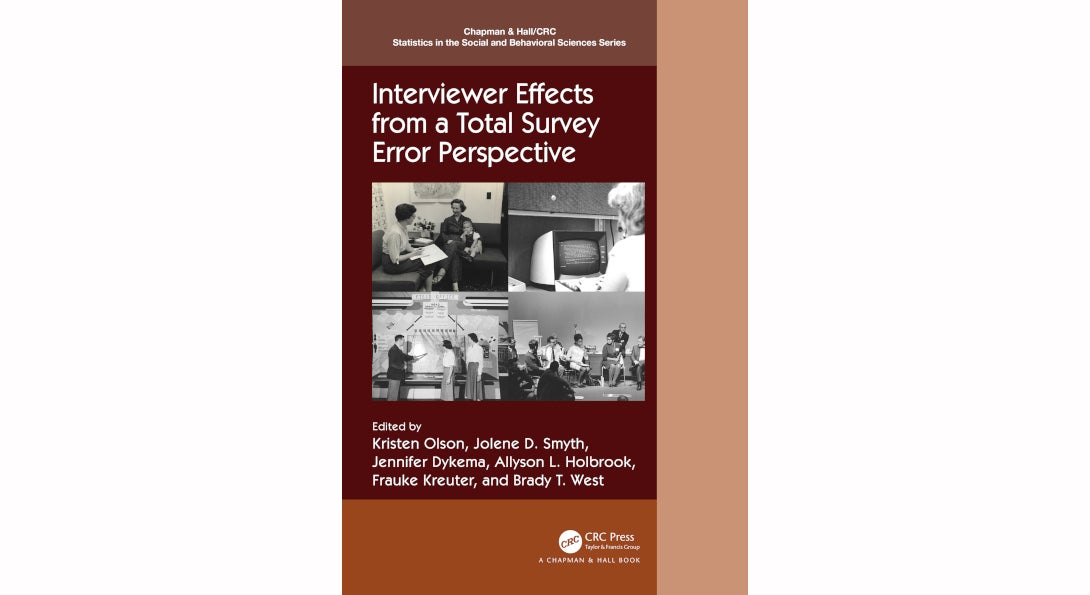PA’s Allyson Holbrook Compiles Book On Interviewer-Administered Survey Data Collection

As more research surveys are conducted online or through automated systems such as robocalls or text messaging, the value and significance of interviewer-administered survey research has, in theory, grown smaller. But for UIC Public Administration Professor Allyson Holbrook, such human-mediated methods are hardly obsolete: these tools are still used in many contexts, from university research settings to studies conducted by the U.S. government. Now, Holbrook and several other editors have compiled Interviewer Effects from a Total Survey Error Perspective, a new book that presents state-of-the-art research on interviewer-administered survey data collection, using the Total Survey Error framework that examines how issues like sampling variability and interviewer bias shape survey outcomes. Coming as a product of a National Science Foundation (NSF)-sponsored conference that drew together national and international leaders in the field, the book contributes vital information to the diverse range of organizations who conduct such research, from universities to for-profit companies to government bodies.
Holbrook was first approached by the book’s lead editor Kristen Olsen, professor of sociology at the University of Nebraska-Lincoln, about their overlapping research interests. Olsen, Holbrook, and several other collaborators organized a panel to discuss these issues at the annual American Association for Public Opinion Research conference, followed by a working group at the Midwest Association of Public Opinion Research. The success of these collaborations, and the growing sense of purpose built over each gathering, led to the group winning an NSF grant to host a small conference of 50 people at the University of Nebraska-Lincoln in 2019. Many of the papers presented at the conference served as the basis for the book’s 23 chapters, published in May.
In addition to co-authoring the introductory chapter with fellow editors Olson, Jennifer Dykema, Frauke Kreuter, Jolene D. Smyth, and Brady T. West, Holbrook also co-authored the chapter “Exploring the Antecedents and Consequences of Interviewer Reading Speed (IRS) at the Question Level.” These chapters, and the many others contained in the book, together constitute a valuable contribution to the field, and testify to the ongoing significance of such research methods to produce high-quality social science data that’s not easily obtained otherwise.
“People who don't really know or think about the full breadth of how surveys are applied think that interviewers are obsolete,” Holbrook said. “People think, ‘Well, we could just do surveys via text, or we can do them on the internet,’ but it’s not that simple.”
Effects from a Total Survey Error Perspective is targeted at the unique blend of groups that use interviewer-administered surveys to make their work succeed. Straddling the academic sphere with a range of industry practitioners, the book itself represents the varied sources of useful knowledge on these practices, increasing its utility to potential readers. Holbrook credits the thoughtful incorporation of this range of voices as key to the book’s success, and hopes that it will prove uniquely valuable to the field as a whole.
“We tried really hard to bring people from universities, but also from university survey centers, government contractors, and also the government itself,” Holbrook said. “The interplay between researchers who are studying these questions and people on the ground who are actually doing surveys that involve interviewers is really valuable.”